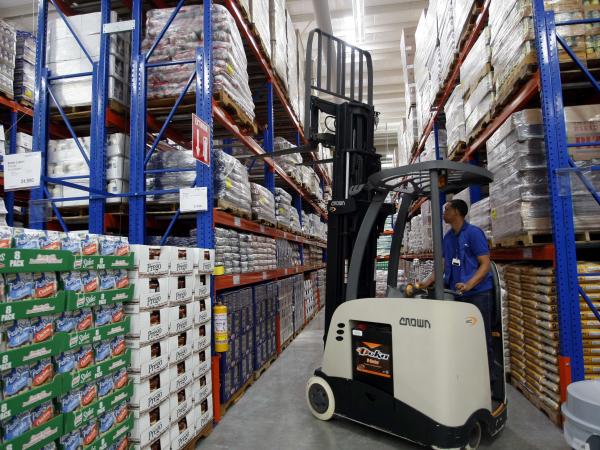Very short-term tracking, future purchases, and inventory buildup These have been some of the strategies that companies have had to follow to keep the market supplied, in the midst of the container crisis and the high cost of the dollar that has altered the pace of imports.
This is indicated by chains and brands consulted by Portafolio that have an intense purchasing activity abroad. The situation has also triggered, in some cases, the national industry benefits because their products gain space on the gondolas.
Businesswoman Patricia Vélez, founder and CEO of the home brands Ambiente Gourmet, Ambiente Living and Club House explains that “we have tried to secure the purchase prices in order to guarantee a good price to the client, using forwards in the banks”.
Proactivity has been key to having the correct supply. “It is up to us to oversupply, pay for external warehouses and try to keep up with the product on time. Obviously, we have many more months of inventories than we should because we are anticipating shortages,” he comments.
Since attending Fairs has not been possible, the development of new products has been achieved digitally, thanks to years of relationship with suppliers.
For her part, Liliana Hernández, Latam commercial director of Minisosays that the operation in Colombia is part of a holding company, “so regionally we have planned and made forecasts for the dollar, and thus cover ourselves as best as possible against all the changes and devaluation that we have had, to minimize the impact on our customers and uphold our promise to always have very competitive prices.”
Due to the container crisis, the region also negotiates as a block to obtain better prepaid rates, reducing the impact of the drastic change in prices and the lack of space to generate shipments.
In his turn, Carlos Ariel Gómez, commercial and supply vice president of Success Group explains that the situation has especially impacted the electro-digital category, because they are products that are mostly not produced in the country. “We have been strengthening our supply hand in hand with our suppliers, we have made multiple efforts to mitigate the impact by placing orders in advance, among other actions“, it states.
TECHNOLOGY AND CARS
Heisson Nessi, general manager of Epson Canada, says that “uncertainty and constant changes do not allow us to make detailed plans well in advance, so we generate action plans for three or six months (depending on the case) that allow us to ‘surf the wave’ that comes, with the information available in that moment. Every month we make revisions and adjustments”.
From his perspective, the most challenging have been the Variations in sales estimates and receipt of supply necessary to meet the demand. Information is very volatile and plans need to be reviewed with business partners. “The key has been communication. The situation is widespread and we share any variation in the plan with our allies who have been able to understand perfectly and together we seek solutions to the inconveniences”He says.
Santiago Holguín, general manager of Lenovo Colombia, explained that the main strategy of the brand has been to expand the network of shipping companies and airlines. Also, he plans to reservations in advance, before it could take seven to 15 days and now up to 30 or 45 days. “With some airlines we have achieved complete charters with Lenovo products for Latin America and they stop at different airports to supply us. In the end, the cost overruns are there and you have to assume them or, in some cases, transfer them to the product.”
On the devaluation, clients handle coverage, prepay merchandise. For the consumer, Lenovo tries to add an additional service or accessories that are in stock to integrate combos that can minimize the impact, he says.
Regarding the situation, Carlo Villamil, general manager of Motorola Canada, says that “our quarterly and annual results demonstrate that our size, scale, strong relationships with suppliers and partners, and the unique hybrid manufacturing model of being part of a group as large as Lenovo, have ensured that we can maximize the available supply. ”. This, he points out, has allowed them to maintain growth in the country.
In companies in the automotive sector, some directors were able to secure orders for the first quarter with the parent companies.
Others, like BMW, they reported logistics problems but at the end of the year they already had the commitments of a shipping company to supply the markets, which shortened delivery times in Colombia. In Renaultthere have been problems with the supply of some parts and although it is less now, it continues to face inconvenience due to lack of parts for some of its models assembled in Colombia.
Luis Torres, CEO of Hyundai Colombia, says that “we all buy in the same currency, therefore it is an issue that unfortunately affects the final consumer, but we always try to make it affect as little as possible”.
BRIEFCASE

















